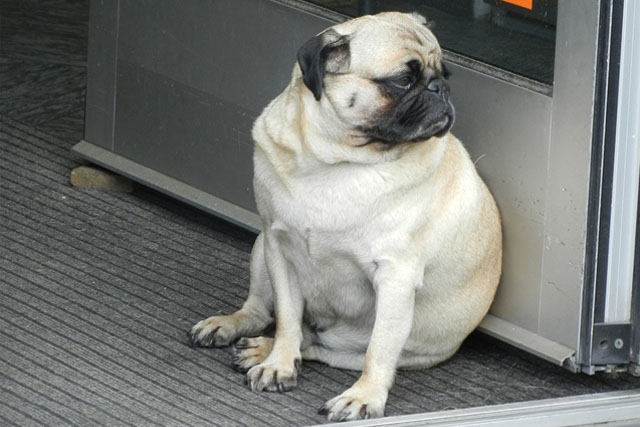



When it comes to choosing the right food for an overweight dog, there are several factors that need to be taken into consideration. These factors play a crucial role in helping your dog lose weight in a healthy and sustainable manner. Let's take a closer look at each of these factors:
One of the most important factors to consider when choosing a food for an overweight dog is the caloric intake. It is essential to select a dog food that is lower in calories compared to their current diet. This will help create a calorie deficit, which is necessary for weight loss. Consult with your veterinarian to determine the appropriate caloric intake for your dog based on their age, breed, and activity level.
While reducing calories is important, it is equally important to ensure that the food you choose is nutrient-dense. This means that it should provide all the essential nutrients that your dog needs, even with a reduced caloric intake. Look for dog foods that are formulated to be nutritionally complete and balanced.
Fiber is an important component of a weight loss diet for dogs. It helps promote satiety and can help regulate blood sugar levels. Look for dog foods that are high in fiber, such as those that contain ingredients like sweet potatoes, pumpkin, or brown rice.
When choosing a food for an overweight dog, it is important to pay attention to the fat content. While fat is an essential nutrient, it is also high in calories. Opt for dog foods that are lower in fat to help reduce calorie intake.
L-carnitine is an amino acid that plays a role in fat metabolism. It helps the body convert fat into energy. Some dog foods are fortified with L-carnitine to support weight loss. Look for dog foods that contain this ingredient.
Antioxidants are important for overall health and can help reduce inflammation in overweight dogs. Look for dog foods that are rich in antioxidants, such as those that contain fruits and vegetables.
Choosing a dog food that promotes satiety is important for weight loss. Look for dog foods that are formulated to help your dog feel full and satisfied after meals. These foods often contain ingredients like lean proteins and high-fiber ingredients.
Caloric density refers to the number of calories per unit of volume or weight. Choosing a dog food with a lower caloric density can help your dog feel full while consuming fewer calories. Look for dog foods that are less dense in calories.
It is important to choose a dog food that is nutritionally complete and balanced. This means that it provides all the essential nutrients that your dog needs in the right proportions. Look for dog foods that meet the standards set by organizations like the Association of American Feed Control Officials (AAFCO).
Both soluble and insoluble fiber are important for weight loss in dogs. Soluble fiber helps regulate blood sugar levels and promotes satiety, while insoluble fiber helps promote healthy digestion. Look for dog foods that contain a good balance of both types of fiber.
Choosing a dog food that your dog enjoys eating is important for weight loss. Look for dog foods that are tasty and palatable to ensure that your dog will eat them willingly.
Overweight dogs are at a higher risk of free radical damage due to increased inflammation in the body. Look for dog foods that are rich in antioxidants to help combat free radicals and reduce inflammation.
Inflammation is a common issue in overweight dogs. Look for dog foods that are formulated to reduce inflammation and promote overall health.
Establishing a regular feeding routine is important for weight loss in dogs. Feed your dog at the same times each day and avoid leaving food out all day. This will help regulate their caloric intake and prevent overeating.
Portion control is crucial for weight loss in dogs. Measure out the appropriate portion size for your dog based on their caloric needs and stick to it. Avoid free-feeding or giving excessive amounts of food.
The frequency of meals can also play a role in weight loss. Some dogs may benefit from smaller, more frequent meals, while others may do well with two larger meals. Consult with your veterinarian to determine the best meal frequency for your dog.
If you have multiple pets or if your dog has access to human food, it is important to take this into consideration when choosing a weight loss dog food. Opt for a dog food that will help prevent your dog from overeating or consuming excessive calories from other sources.
Treats can contribute to weight gain in dogs. Limiting the number of treats you give your dog is important for weight loss. Look for low-calorie treats or consider using alternative rewards, such as praise or playtime.
If you do choose to give your dog treats, opt for low-calorie options. There are many low-calorie treats available on the market that are specifically formulated for weight loss. Look for treats that are made with lean proteins and high-fiber ingredients.
Regular exercise is important for weight loss in dogs. Consult with your veterinarian to determine an appropriate exercise routine for your dog based on their age, breed, and overall health. Incorporate regular exercise into your dog's daily routine to help them burn calories and lose weight.
The rate at which your dog loses weight is also important to consider. Rapid weight loss can be detrimental to your dog's health. Aim for a slow and steady weight loss of 1-2% of their body weight per week. This will help ensure that they are losing weight in a healthy and sustainable manner.
Regularly monitoring your dog's weight is important to track their progress and make any necessary adjustments to their diet or exercise routine. Weigh your dog regularly and consult with your veterinarian if you notice any significant changes in their weight.
Once your dog has reached their ideal weight, it is important to maintain it. Transition them to a weight maintenance dog food that is appropriate for their age, breed, and activity level. Continue to monitor their weight and make any necessary adjustments to their diet or exercise routine as needed.
After your dog has reached their ideal weight, it is important to be mindful of their caloric intake from treats. While treats can be given in moderation, excessive treats can contribute to weight gain. Adjust the amount of treats you give your dog to ensure that they are not consuming excessive calories.
Lastly, it is important to consult with your veterinarian for guidance and recommendations when choosing a food for an overweight dog. They can provide valuable insight and help you select the best dog food for weight loss based on your dog's specific needs and health condition.
By considering these factors and making informed choices, you can help your overweight dog achieve and maintain a healthy weight. Remember to consult with your veterinarian for personalized advice and guidance throughout the weight loss journey.
Leave a Reply
Related posts